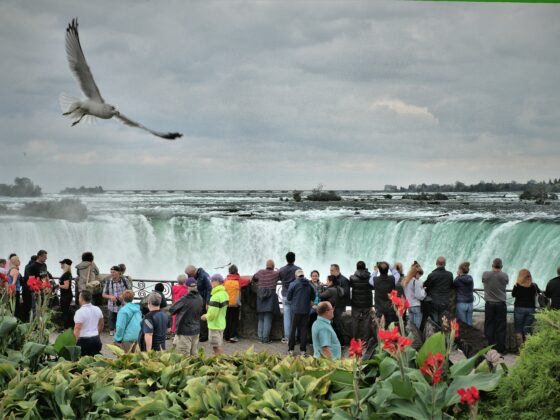Google just rolled out new AI-powered features in Search that can plan a trip, find deals, and turn your ideas into bookings. All from a single prompt.
So I tried it. I asked Google’s AI mode:
“Suggest highly-rated hotels for a family visit to London this Christmas.”
Here’s what it came back with:
“For a family trip to London this Christmas, consider highly-rated hotels known for their amenities and proximity to attractions, such as the Park Plaza Westminster Bridge, the Royal National Hotel, and the Hilton London Metropole. For a more luxurious stay with exceptional family-friendly services, consider The Goring or St. Ermin's Hotel, Autograph Collection.”
Five names. That’s it. And three of them are not the giant global brands you’d expect to dominate AI search after spending millions on SEO every year. That’s the interesting part.
Where those five hotels really come from
Google’s AI mode didn’t “imagine” that list. It assembled it from sources it both trusts and can easily access. Because publishers have very different strategies around AI. Some license their archives, some litigate, some block crawlers. AI systems lean heavily on what’s open and available on the web. In practice, that often means user-generated content, OTAs, and niche publishers rather than just the usual big names.
For this one family-Christmas-in-London query, most of the citations came from places like Tripadvisor (appearing five times), Facebook (twice), Expedia (twice), plus Trivago, Agoda, Lastminute, London Theatre and Grand Central Rail. Layered on top of that were small family travel blogs and niche sites such as Globetotting, MummyTravels and A Suffolk Mum.
So the shortlist of hotels is effectively being shaped by a mosaic of reviews, listicles, community threads and very human blog posts – many of them written by people who’ve actually tried to do “London at Christmas with kids”.
Another pattern: the language in those sources looks a lot like the language in my prompt. Titles and headings lean heavily on phrases such as “best family hotels”, “Christmas break”, “near Hyde Park”, “theatres and attractions”, “culture and concerts”, and so on. That wording helps AI understand who a hotel is good for (families), when (Christmas), and why (location, activities, vibe).
In other words: your visibility in AI search is now being shaped as much by how you’re talked about in these ecosystems as by what’s on your own beautifully designed website.
What this means if you’re a hotel or travel brand
First, optimising for AI search is no longer optional. It doesn’t mean turning your site into a wall of keywords, but it does mean spelling things out clearly enough that an AI system can confidently place you in the right use cases. If you’re perfect for “Winter Wonderland with young kids” or “West End theatre breaks with teens”, say so. Make the family angle, the Christmas angle, and the location benefits explicit in your copy and FAQs, in a way that still respects your luxury tone of voice.
Second, the communities your guests already trust have quietly become AI signal hubs. Tripadvisor is no longer just a front-office metric; it’s feeding into how assistants justify their recommendations. Facebook groups, OTAs, attraction and theatre sites, and niche blogs all help AI understand when you’re a relevant choice. The question shifts from “Do we have good reviews?” to “Are we even present, and clearly positioned, in the places AI is learning from?”
Third, PR needs a small mindset shift. Think of your flagship coverage – Condé Nast Traveller, FT, top-tier luxury magazines – as your grand front entrance: immaculate, on brand, unmissable. You still need that. But AI is increasingly sending traffic through the back alley: Tripadvisor threads, family blogs, listicles about “where to stay near Winter Wonderland”, Facebook recommendations.
If your hotel is the beautiful boutique on the high street, AI is walking customers round the back and seeing which signs are up in that alley. You can’t ignore it. You need both: the polished façade and the clear, consistent signage in all the messy, human places where people actually talk about you.
AI travel tools like Google’s new mode aren’t just “helping people plan trips”. They’re quietly deciding which five names get mentioned, again and again, when someone asks a question that sounds a lot like your ideal guest.
So it’s worth asking: “If someone like my ideal guest asked an AI assistant for a hotel like mine… would it actually find me?”
That’s the next frontier for visibility.









